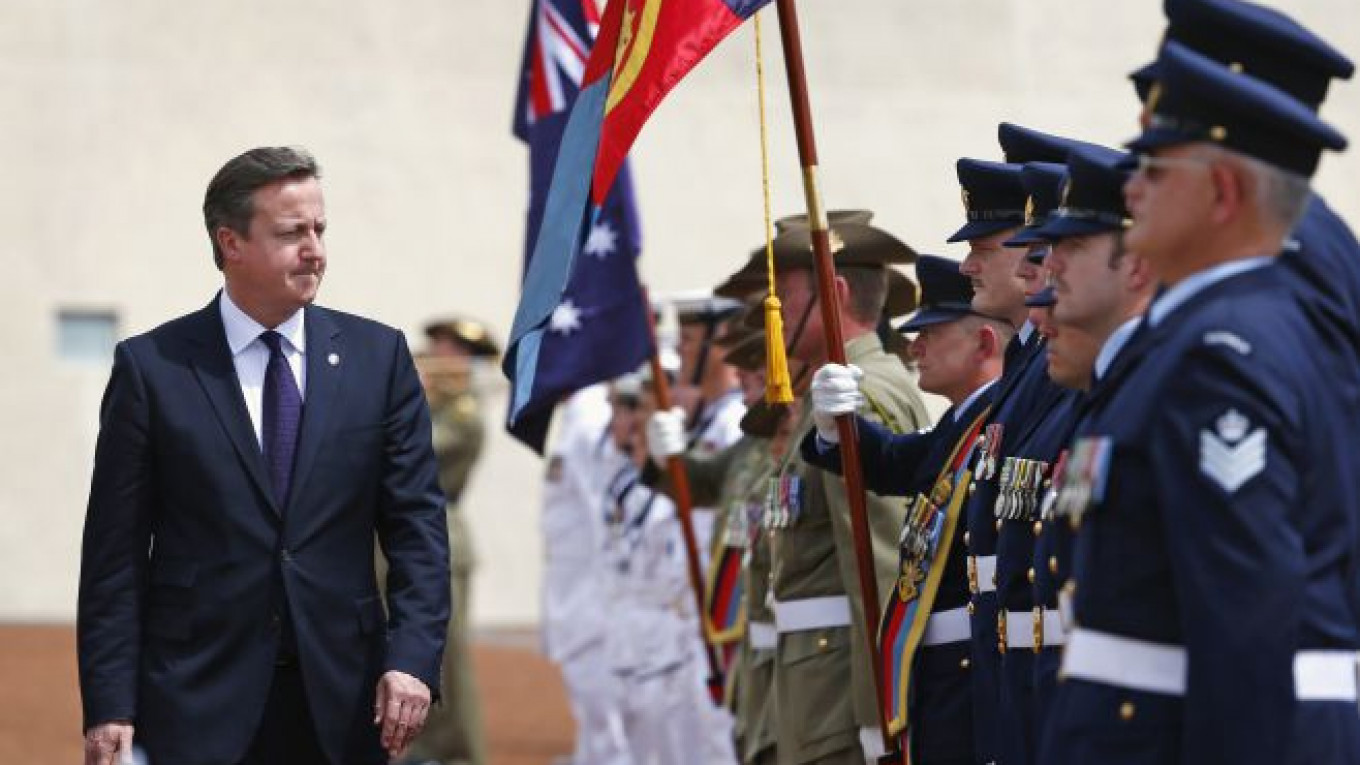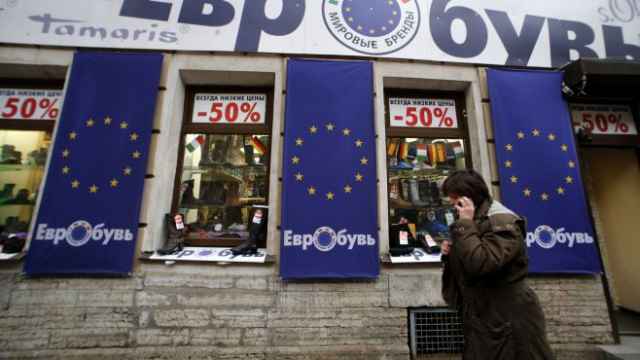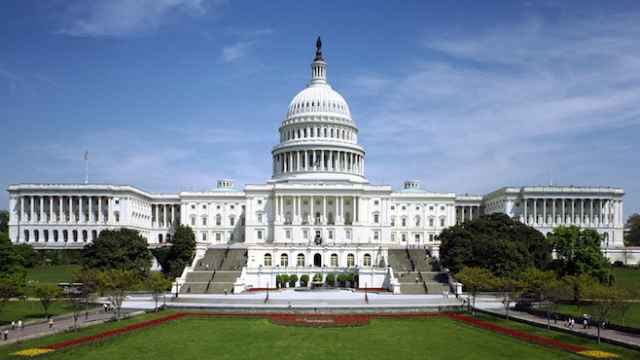British Prime Minister David Cameron said Friday Russia's actions in eastern Ukraine are unacceptable and could draw greater sanctions from the United States and European Union, but the bloc remains divided.
"I still hope that the Russians see some sense and recognize that they should allow Ukraine to develop as an independent and free country, free to make its choices," Cameron told a news conference in Canberra.
"If Russia takes a positive approach towards Ukraine's freedom and responsibility we could see those sanctions removed, if Russia continues to make matters worse then we could see those sanctions increased, it's as simple as that."
Ukraine accused Russia on Thursday of sending soldiers and weapons to help separatist rebels in eastern Ukraine.
But with European Union governments divided, a decision on whether to tighten economic sanctions on Russia over the Ukraine conflict is likely to be left to EU leaders, who next meet in mid-December, diplomats said Thursday.
EU foreign ministers will discuss Ukraine at a meeting in Brussels on Monday, the first chaired by the EU's new foreign policy chief Federica Mogherini. But no decisions on ratcheting up economic sanctions on Russia are expected despite the deteriorating security situation in eastern Ukraine.
The United States warned Russia on Thursday the West might punish it further for its "military escalation" of the crisis, as Moscow and Kiev accused each other of truce violations in a conflict that has killed more than 4,000 people.
But EU ministers, at most, may order officials to draw up names of eastern Ukraine separatists, and possibly some Russians, who would be added to an existing list of officials under EU travel bans and asset freezes, EU diplomats said.
About six of the EU's 28 governments are pushing the bloc to consider taking new economic measures, on top of the financial, energy and defense sanctions already imposed. But some other EU governments oppose such a step, the diplomats said.
A decision on whether or not to step up economic sanctions is therefore likely to be left for EU leaders who next meet in Brussels on Dec. 18 and 19, diplomats said, although one source did not rule out calls for a special summit if the situation in Ukraine deteriorated.
That was backed up by a discussion paper circulated to EU member states by the EU's diplomatic service before Monday's meeting.
The paper said foreign ministers would be asked for their views about the different options on further economic sanctions and about the role they could play to prepare for "an eventual discussion" of the issue by EU leaders.
EU governments would also discuss whether more pro-Russian separatists should be added to the sanctions list "keeping in mind that the main separatist leaders are already listed ... and the fact that the targeted separatists could be at some point agents in the implementation of the peace plan."
In a speech in Latvia on Thursday, Mogherini set out a three-pronged EU strategy, including economic pressure, keeping political channels open, and support for Ukraine.
A Message from The Moscow Times:
Dear readers,
We are facing unprecedented challenges. Russia's Prosecutor General's Office has designated The Moscow Times as an "undesirable" organization, criminalizing our work and putting our staff at risk of prosecution. This follows our earlier unjust labeling as a "foreign agent."
These actions are direct attempts to silence independent journalism in Russia. The authorities claim our work "discredits the decisions of the Russian leadership." We see things differently: we strive to provide accurate, unbiased reporting on Russia.
We, the journalists of The Moscow Times, refuse to be silenced. But to continue our work, we need your help.
Your support, no matter how small, makes a world of difference. If you can, please support us monthly starting from just $2. It's quick to set up, and every contribution makes a significant impact.
By supporting The Moscow Times, you're defending open, independent journalism in the face of repression. Thank you for standing with us.
Remind me later.






